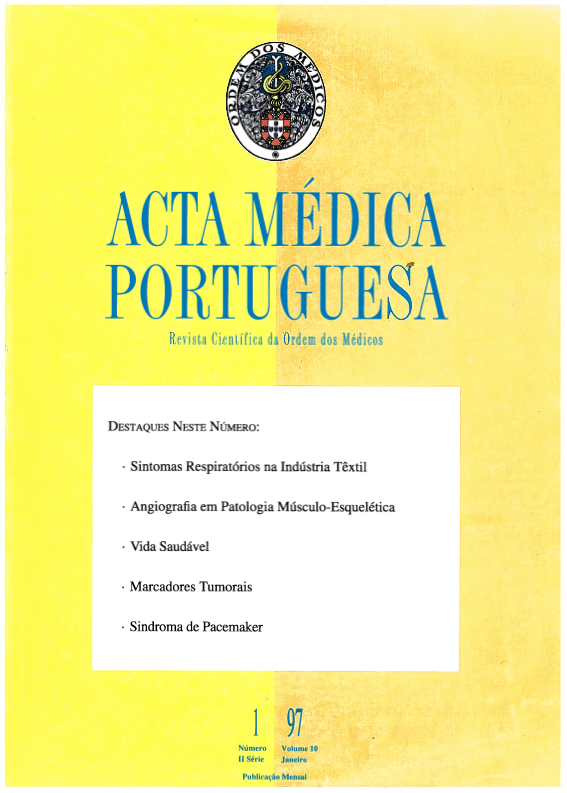Mail questionnaires. A useful strategy for the follow-up of patients with a cerebrovascular stroke?.
DOI:
https://doi.org/10.20344/amp.2380Abstract
Although not frequently used in Portugal, postal questionnaires allow the collection of information on patient's follow-up. In this study we assessed the rate of response and the usefulness of a postal questionnaire in a sample of patients with acute stroke. A prospective study was designed and analysed as a case-control: postal questionnaires were sent to 138 patients together with a randomly assigned stamped or post-free return envelope. The percentage of responders was 60% (n=78) and we found no significant differences in response rates according to the mailing strategy (58% for stamped and 62% for post-free return envelopes, p = 0.786). The time gap between hospital discharge and sending of the questionnaire had no significant influence in the response rate. Elder patients and women tend to respond more frequently, but these characteristics also do not change the response rate. Analysing socio-demographic variables reported at the acute phase, we only found differences in response rate for the smoking status: smoking was associated with a lower participation. In conclusion, the present study showed that a postal questionnaire is a useful method for the follow-up of stroke cases and that we must pay special attention to smokers for whom alternative strategies of contact or information should be used to increase compliance with postal questionnaire follow-up.Downloads
Downloads
How to Cite
Issue
Section
License
All the articles published in the AMP are open access and comply with the requirements of funding agencies or academic institutions. The AMP is governed by the terms of the Creative Commons ‘Attribution – Non-Commercial Use - (CC-BY-NC)’ license, regarding the use by third parties.
It is the author’s responsibility to obtain approval for the reproduction of figures, tables, etc. from other publications.
Upon acceptance of an article for publication, the authors will be asked to complete the ICMJE “Copyright Liability and Copyright Sharing Statement “(http://www.actamedicaportuguesa.com/info/AMP-NormasPublicacao.pdf) and the “Declaration of Potential Conflicts of Interest” (http:// www.icmje.org/conflicts-of-interest). An e-mail will be sent to the corresponding author to acknowledge receipt of the manuscript.
After publication, the authors are authorised to make their articles available in repositories of their institutions of origin, as long as they always mention where they were published and according to the Creative Commons license.









